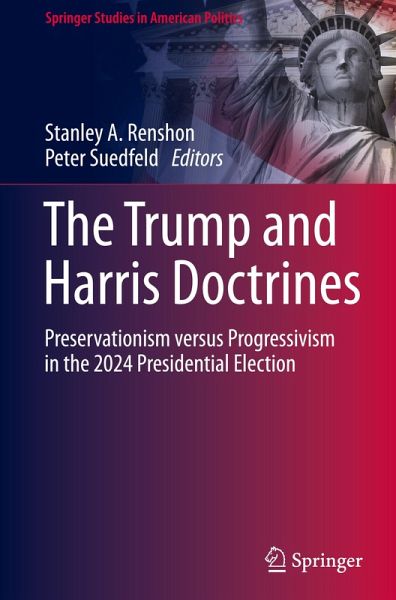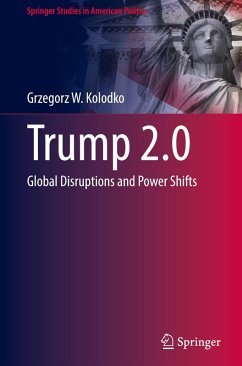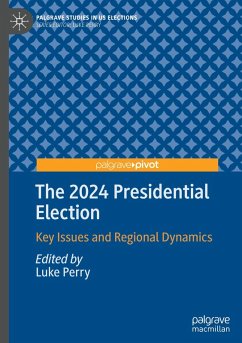
The Trump and Harris Doctrines
Preservationism versus Progressivism in the 2024 Presidential Election
Herausgegeben: Renshon, Stanley A.; Suedfeld, Peter

PAYBACK Punkte
31 °P sammeln!
The 2024 U.S. presidential election will hinge on two very different basic approaches to domestic and foreign policy, two very different sets of underlying premises, and two very different types of presidential and high-level official personalities at the administrative helm putting them into effect. Republican presidential nominee Donald Trump is campaigning on a nationalist conservative preservation platform. It is a direct antithesis of the Biden-Harris- Waltz progressive transformation agenda. This volume comparatively analyzes the choices of presidential doctrine that are likely to define...
The 2024 U.S. presidential election will hinge on two very different basic approaches to domestic and foreign policy, two very different sets of underlying premises, and two very different types of presidential and high-level official personalities at the administrative helm putting them into effect. Republican presidential nominee Donald Trump is campaigning on a nationalist conservative preservation platform. It is a direct antithesis of the Biden-Harris- Waltz progressive transformation agenda. This volume comparatively analyzes the choices of presidential doctrine that are likely to define the principles, beliefs, and nature of U.S. foreign policy in the years following the election of either candidate and their vastly different agendas.
"Renshon, Suedfeld, and contributors do an excellent job of analyzing the different foreign policy assumptions and implications associated with the Trump and Biden presidencies at a time of deepening international crisis."
Richard Ned Lebow, King's College London
"I can think of no better book to objectively compare and contrast President Biden's foreign policy with that of the Trump administration. A very useful and fair-minded collection of essays containing a range of perspectives."
Colin Dueck, George Mason University
"Renshon, Suedfeld, and contributors do an excellent job of analyzing the different foreign policy assumptions and implications associated with the Trump and Biden presidencies at a time of deepening international crisis."
Richard Ned Lebow, King's College London
"I can think of no better book to objectively compare and contrast President Biden's foreign policy with that of the Trump administration. A very useful and fair-minded collection of essays containing a range of perspectives."
Colin Dueck, George Mason University














